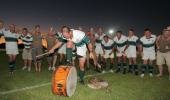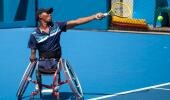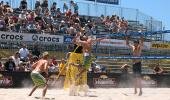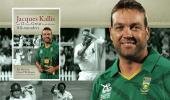Words & Photos: Eunice Visagie
There is no doubt that South Africa has the talent, but the only way to see this talent claim a place on the world stage of hockey is if this sport can get the necessary funding.
Photos by: Eunice Visagie
Two of South Africa’s most experienced and key players, captain Austin Smith and striker Lloyd Norris-Jones, believe that the foundation is there. Unfortunately, it’s at the top level of this sport, when money becomes crucial, where it all goes wrong. Both Smith and Norris-Jones have earned more than 100 caps and represented their country at the Olympic Games, World Cup and Commonwealth Games. South Africa has the numbers, regarding players, and there is a steady growth of astro turf fields being built around the country, with less schools playing their games on grass fields. Thus, the foundation for the sport is strong.
“We are having success in some areas and less so in others. In the lower levels, we have seen a huge increase in the number of players gaining access to astro turf, which is hugely important for their development. It also excites me to see the number of professional clinics being run around the country. These events are crucial for getting kids excited about hockey, as well as for their skill development. The number of schools putting down astros is also steadily increasing, with a number of them looking to place a second, which again is very encouraging,” said Smith, who plays his club hockey in the Dutch’s Hoofdklasse for Den Bosch. He is also the captain of his club side.
Norris-Jones is of the opinion that the problem comes in when funding is needed. “There are so many factors to consider when thinking about hockey in this country and what state it is in. With only two people working in the South African Hockey Association (SAHA) office, the workload is far too much to also put effective proposals in place that will attract and secure big sponsors. The office should have 10 people doing 15 different facets of the association. It’s just too much to handle for two people,” said Norris-Jones. Smith added, “It is hard not to notice that our senior teams still haven't made it into the top 10 at any of the recent major tournaments. This is something that needs to change in the coming years.” For these changes to happen, funding is needed.
Currently, the men’s team has a sponsor, but it is not enough. In Europe, hockey is in some cases professional and at worst semi professional. That is not the case for Smith and his team. They recently lost their coach just months before the World Cup in The Hague, Netherlands. Charlie Perreira just wasn’t willing to struggle on. Now the onus is on Fabian Gregory to take the team to the World Cup, which is being held from 31 May to 15 June 2014.
The lack of financial support is not only regarding salaries for players, or even just paying them a match fee. It is critical to have funding for training camps, as well as to get international teams here for test matches or send the team overseas to gain as much international experience as possible. In some cases, the players have to take money out of their own pockets for the chance to represent their country. “Financial support is vitally important. We are just lucky to be a mass-participation sport, otherwise the funding we get from the government would be minimal and we wouldn't be able to get any international exposure,” said Norris-Jones.
“They say money isn't everything, but in this case it certainly is,” commented Smith. “Without funding, we aren't able to employ enough staff to run the programmes we would like to, have teams meet regularly to train or afford to get much-needed tour experience. Worldwide, hockey is becoming more and more professional, with many of the teams training full time for months prior to major tournaments. Without financial backing, we simply cannot compete with these teams.”
Smith has been named in the international All Star team – a world team that is chosen at the end of each year. While Norris-Jones’s blistering speed and ability to score goals has made him a deadly weapon. However, they are not the only players that have boundless individual talent. Due to players only getting together every now and then, seeing these talented individuals perform as a world-class team hasn’t happened yet.
“One of the biggest problems we face in the senior teams is keeping squads together over an extended period of time. All too often, players reach 80-100 caps and then retire. If you look at other national teams, you will find the average player has well over 100 caps. Players can't put off work and earning an income until they are 35, so it is understandable. It's sad both for the association and players that they simply cannot afford to play for their country any longer,” said Smith.
“Our biggest shortcoming is finance. We have the talent, now we just need the finance to get us to more international tournaments. With more international hockey exposure, we would be more competitive at major international tournaments and climb up the world rankings,” said Norris-Jones. The team is currently ranked 12th.
Both Smith and Norris-Jones have played in the Indian Hockey League (HIL), which was started in 2013 and is based on the same principles as the Indian Premier League for cricket. Smith and fellow South African Justin Reid-Ross play for the Ranchi Rhinos, who won the HIL in the opening series. Norris-Jones and Tim Drummond played for the victorious Delhi Waveriders in the 2014 HIL that ended in March. According to Norris-Jones, the performances of the South African players in tournaments like the HIL prove that the country has the talent to produce top-class performances.
Photos by: Eunice Visagie
“We have the talent!” South African sportsmen are extremely talented in general. We have competed individually, and favourably, in leagues around the world, so there are no shortcomings in that department. The HIL is extremely important for hockey worldwide, as it is propelling the sport into a more professional limelight,” said Norris-Jones.
For Smith, the HIL is a great platform to raise the profile of hockey. “I think the formation of the HIL is a huge positive. Suddenly top players are able to earn significant sums of money (in hockey terms), which can help players sustain the hockey lifestyle for a longer period. Not only is it a chance to earn money, it is also a brilliant advertisement for the sport. It really showcases the sport, and who does glitz and glamour better than the Indians. For the players, it is a fantastic opportunity to play in a unique environment and it's also great fun to play alongside someone who you normally only see on the other side of the field during an international match.”
Even though the path they have chosen is not one without obstacle or sacrifice, neither Smith nor Norris-Jones would have chosen differently. Like many people who decided to make their hobbies their career, it will never be about making pockets full of money. It is more about the experiences and opportunities that present themselves.
“The ability to play hockey full time as a career for a short period in my life is something very special. All too soon I will be working an 8-5 job, so while I have the time I am going to cherish every moment I have to play hockey, and to play hockey for South Africa,” said Smith.
I've travelled the world and met my best friends playing hockey,” said Norris-Jones. “Playing for your country is just the cherry on the top and I'll be forever grateful for pursuing this career.”
If you would like to support SA hockey, please visit www.sahockey.co.za or Austin Smith’s website www.austinsmith.co.za for more details.
You can also follow the team on their Twitter handles:
Austin Smith @AustinSmith5; Lloyd Norris-Jones @LloydNJones; Lloyd Madsen @Lloyd_Madsen; Dylan Swanepoel @DylSwan19; Pierre de Voux @jpdevoux; Wade Paton @WadePaton; Taine Paton @Taine_Paton; Rhett Halkett @RhettHalkett; Andrew Cronje @andrewcronje; Tim Drummond @TimDrummond










